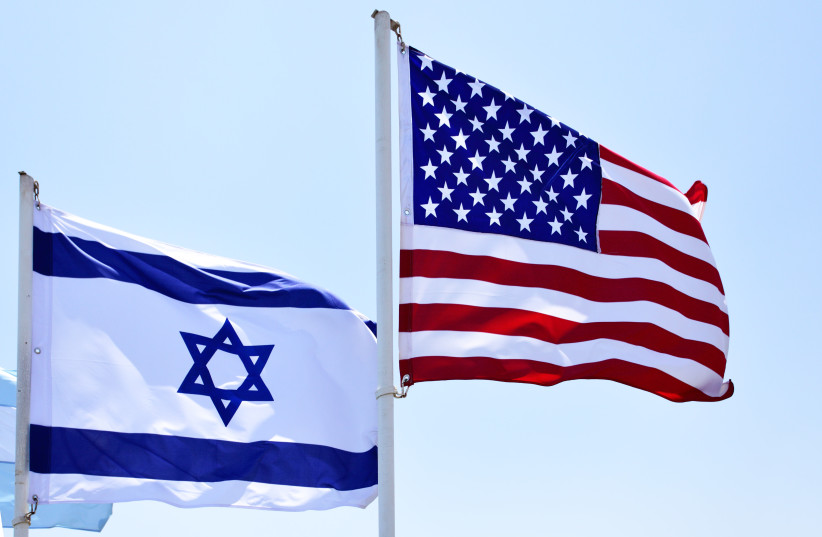Israel and the US are like bickering brothers and sisters who occasionally throw punches but always have each other’s back when it counts.
The strength of their relationship was evident on Wednesday when US President Joe Biden stood at the podium and said that his highest priority was releasing hostages from the grips of Hamas terrorists in Gaza.
He said, “Israel is not alone. The US stands with you… And we will ensure that Israel has what it needs to take care of its citizens, defend itself and respond to this attack.”
A meaningful address to Israelis and Americans alike
The president’s remarks carried significant weight, broadcasting a resounding message to the world, including Israel’s adversaries, that harming Israel equates to hurting America.
What stands out is the timing of these statements – numerous speeches on Wednesday and the particularly noteworthy and heartfelt address on October 10 – which transpired just months after some unusually pointed exchanges between Biden and Prime Minister Benjamin Netanyahu.

Even though Biden and Netanyahu recently met on the sidelines of the United Nations General Assembly, the prime minister has still not visited the White House, and commentators have argued that the relationship between Biden and Netanyahu had become chilly.
Biden’s response to the October 7 attack proved otherwise – the president deeply cares for Israel.
Perhaps he took a card from former US president Barack Obama, for whom Biden served as vice president when a similar tension was evident. Obama characterized Israel’s presence in the West Bank as an “occupation” and vehemently opposed settlement construction. He also pushed for and passed an Iran deal that Israel believed was unsafe.
In defiance, Netanyahu delivered a speech to Congress during which he criticized the Joint Comprehensive Plan of Action as “very bad.” The prime minister argued that the agreement would not only fail to prevent Iran from acquiring nuclear weapons but would also facilitate the rogue state’s efforts.
Despite these tensions, Obama signed a $38 billion military aid package with Israel – at the time, the single most significant pledge of bilateral military assistance in US history, according to the White House.
As Biden noted many times during his speeches, US President Harry S. Truman made America the first nation to recognize Israel’s sovereignty – only 11 minutes after its creation. Today, in central Israel, Kfar Truman is named after the late president.
Over the years, various presidents have applied pressure on Israel in different ways. Yet, the two nations have consistently stood by each other, akin to siblings who may squabble but unite against a bully.
Regarding pressure, when Israel attacked Egypt in 1956, intending to capture the Suez Canal and oust Egyptian President Gamal Abdel Nasser, President Dwight Eisenhower exerted intense pressure on Israel to withdraw its troops. Eventually, Israel complied.
According to documents published by the US National Security Archive, president John F. Kennedy was concerned about Israel’s nuclear proliferation and pressured Israel to agree to inspections of Dimona by the International Atomic Energy Agency.
Israel is still believed to have a nuclear weapons project, but it has never been confirmed.
On the other hand, President Jimmy Carter brokered peace between Egypt and Israel, bringing the countries together for the Camp David Accords. President Donald Trump brokered the Abraham Accords, bringing Israel unprecedented relations with the United Arab Emirates, Morocco and Bahrain.
“Today, I say the US is not going anywhere. We will stand with you… We will walk beside you… The people of Israel live.”
President Joe Biden
Israel has significantly influenced US policy and vice versa, extending beyond the Israel-Palestinian conflict, as both countries comprehend the depth of their interdependence.
Since the Hamas massacre, Biden enhanced the US military force posture in the region to strengthen deterrence against Israel’s enemies. The Department of Defense moved the USS Gerald R. Ford Carrier Strike Group to the Eastern Mediterranean and bolstered its aircraft fighter presence.
“We stand ready to move in additional assets as needed,” Biden said in one speech. “To any country, any organization, anything thinking of taking advantage of the situation, I have one word: Don’t. Don’t. Don’t.”
He said, “Today, I say the US is not going anywhere. We will stand with you. We will walk beside you."
